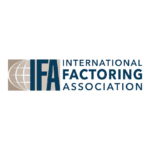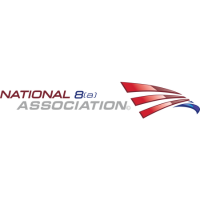Staffing compliance can feel overwhelming and complicated — to be fair, it often is! The guide below offers a down-to-earth explanation with insights from staffing experts.
Let’s dig in. Compliance is the actions and processes staffing agencies have to adhere to from a legal, regulatory, and ethical standpoint.
They’re essential for operating legally, but also to protect your agency’s reputation, financial stability, and client or employee relationships.
State and federal employment policies, labor laws, and tax regulations are constantly in flux. This is why it can feel hard to stay on top of them, especially if your staffing agency operates across states and industries.
Compliance is one of the top challenges for staffing entrepreneurs, especially during periods of growth or when entering new markets.
The good news is that staffing compliance doesn’t have to be a total burden; in fact, you can make it a growth engine that supports long-term success.
Why Making Payroll Can Be a Staffing Compliance Challenge
Calculating payroll for complex employment situations may not be top of mind when you think of staffing compliance challenges, but we tackle it daily.
As our founder, Joel Adelman, explains, complex back-office operations like payroll funding are one of the top reasons why a growing staffing agency may choose to outsource some of its operations to a dedicated team.
Encore Funding is your knowledgeable and proactive partner in overcoming payroll issues, but we don’t stop there. I’ve spent decades in the staffing industry helping entrepreneurs grow through compliance issues.
Keep reading to see the top staffing compliance requirements and challenges.
What Are the Key Legal Requirements for Starting a Staffing Agency?
The backbone of staffing compliance begins with a legal framework that keeps your operations compliant and credible. I like to group legal requirements into these four buckets.
1. Licenses & Registrations
Every staffing business needs a few foundational items to open its doors legally:
- Federal Employer Identification Number (EIN): Issued by the IRS, this number is essential for payroll, taxes, and hiring employees.
- Business license: Most cities, counties, or states require a general license to operate legally.
- DBA registration: If your agency operates under a different name, you’ll need to register that name locally.
- State-level requirements: Including unemployment insurance registration and workers’ compensation coverage — since your agency is the employer of record.
Unlike some industries, staffing doesn’t have a single federal license, but it does have several mandatory state and federal registrations.
See the Complete Breakdown.
Bookmark this page for quick access to essential resource links.
2. EEOC Compliance
Staffing agencies must comply with federal anti-discrimination rules enforced by the Equal Employment Opportunity Commission (EEOC). This means:
- Referrals and placements must be free from bias based on race, sex, age, disability, religion, and other protected categories.
- Agencies should create clear policies and keep documentation of hiring decisions.
- Training staff on compliance helps reduce risk of complaints or audits.
As the legal employer, your agency can be held liable for discriminatory practices, even if driven by a client’s request.
Glossary at a Glance
EEOC: The U.S. Equal Employment Opportunity Commission (EEOC) is responsible for enforcing federal laws that make it illegal to discriminate against a job applicant or an employee because of the person's race, color, religion, sex (including pregnancy, childbirth, or related conditions, transgender status, and sexual orientation), national origin, age (40 or older), disability or genetic information.
Source: EEOC.gov
3. Insurance Coverage
Coverage protects your agency financially and is often required by law or client contracts:
- Workers’ compensation: Mandatory in nearly every state for placed employees. We’ll cover this in depth in the next section.
- General liability: Covers property damage or bodily injury claims.
- Professional liability (errors & omissions): Protects against claims of negligence.
- Employment practices liability: Covers discrimination, wrongful termination, and similar claims.
It’s important to note that insurance needs can change based on the industry in which you place workers and your client base.
4. Industry-Specific Certifications
While certifications aren’t always mandatory, I consider them valuable. These are the certifications I recommend, depending on your industry.
- Certified Staffing Professional (CSP): Boosts credibility across industries.
- Technical Services Certified (TSC): For agencies placing IT or engineering talent.
- Health Care Staffing Services Certification: This certification is for agencies placing healthcare or medical workers. The Joint Commission’s Health Care Staffing Services Certification and the American Staffing Association’s Certified Health Care Staffing Professional® designation are two of the most popular and credible.
- Minority- or women-owned certifications: Optional, but can open doors to certain contracts.
Certifications signal professionalism and can help win new business.
Now, let’s cover one of the most complex staffing compliance topics: workers’ compensation.
How Workers’ Compensation Protects Your Agency and Employees
Workers’ compensation isn’t just a box to check; it’s central to running a legally compliant staffing agency. As the legal employer of your temp workers, your agency is responsible for covering medical expenses and lost wages if they’re injured on assignment.
Many staffing entrepreneurs view workers’ compensation as a complex challenge, especially for a multi-state operation.
It often means juggling different rules, rates, and reporting standards. Industry-specific risks—like construction or healthcare placements—drive up claim costs, and because premiums are tied to claims history, even a few incidents can have a long-term financial impact.
Rising claim costs and state-by-state rule changes make workers’ comp one of the toughest parts of staffing compliance. The good news is that proactive strategies can help you stay ahead.
Leading firms vet client job sites to confirm safety measures, invest in employee safety training, and use technology to track incidents and compliance metrics in real time. These steps reduce claims and strengthen client relationships and protect your bottom line.
Get the Guide
Read our full guide for practical workers’ comp tips and technology solutions
How Workers’ Compensation Compliance Impacts Cash Flow
Building on the importance of proactive risk management, it’s equally critical to look at how workers’ comp affects your staffing agency’s finances.
Workers’ compensation premiums are a major ongoing cost, often billed in large installments or tied to unpredictable claims.
This means that even a single workplace injury can spike your premiums and strain day-to-day liquidity. Because staffing agencies typically pay these premiums before collecting on client invoices, cash flow gaps can widen quickly.
So, how can you balance rising compliance costs with the need to fund payroll and operations without delay? Many staffing entrepreneurs turn to payroll funding.
By turning unpaid invoices into immediate capital, you can cover insurance premiums, pay claims-related expenses, and keep contractors paid, all without waiting 30+ days for clients to pay.
Glossary at a Glance
Payroll Funding: Payroll funding, or payroll factoring, helps you pay your staff while waiting for your clients to pay you. Using your outstanding invoices issued to your clients as collateral, a factoring company will give you the funds you need now to cover payroll.
This approach helps maintain financial stability and supports ongoing compliance efforts like paying workers’ comp premiums. I cover how to reduce the burden of workers’ compensation in more detail in our Resources.
Creating a Compliance-First Business Plan for Staffing Agencies
An underrated way to enhance your staffing compliance is by integrating it into your core business plan. If you’re creating a business plan for the first time or want to reevaluate an existing one, I recommend this resource as a guide. New to the staffing industry? See which business structure makes the most sense for you before creating a business plan.
Start by mapping compliance milestones into your timeline. These are several key milestones.
- Secure licenses
- Set up workers’ comp and liability insurance
- Implement EEOC training for recruiters
Treat each as a core project with deadlines and owners, not as side tasks.
Next, use financial forecasting to plan for compliance costs. Factor in premiums, legal consultations, software subscriptions for HR documentation, and training programs.
Tools like scenario planning help you see how an unexpected claim or audit might affect cash flow, so you can build reserves or funding strategies.
Many successful staffing entrepreneurs track compliance KPIs alongside revenue. Compliance KPIs include:
- Compliance audit results
- Claim frequency
- Time to onboard new contractors compliantly
Glossary at a Glance
Compliance Audit: A complete examination of a staffing agency’s policies, practices, and procedures to evaluate compliance with laws and regulations. Review of policies, data and record analysis, interviews or observations, and risk assessment are main audit components, among others.
Beyond numbers, build operational plans around risk assessments and industry-specific checklists. Document employee policies, onboarding protocols, and ongoing training plans.
Identify trusted partners like payroll providers, legal advisors, insurance brokers and add them to your plan as part of your compliance strategy.
Finally, position your commitment to compliance as a competitive advantage: clients trust agencies that show documented, proactive processes to protect both workers and client businesses.
Encore Funding supports agencies at this planning stage, not just by providing payroll funding, but through strategic guidance that helps you proactively manage compliance risks.
Reducing Administrative and Regulatory Burdens Through Strategic Partnerships
Once your compliant business plan is in place, the next challenge is execution: turning strategy into daily operations without overwhelming you or your internal team. Strategic partnerships can make this possible.
- Partnering with a payroll funding company like Encore Funding helps automate wage calculations, tax filings, and workers’ comp reporting, which can reduce manual errors and free up time for client service.
- Legal advisors and compliance consultants bring expertise on fast-changing regulations, helping agencies stay ahead of audits and avoid costly fines.
- Insurance brokers can regularly review policies to keep coverage in step with business growth and workforce changes.
Together, these partnerships transform staffing compliance from a constant administrative task into an efficient, largely automated process that cuts risk and boosts operational agility.
Encore Funding fits into this strategy by stabilizing cash flow through payroll funding and strategic guidance. That means your agency can cover compliance costs, from training to insurance premiums, without waiting on client payments, keeping your entire risk management plan funded and functional.
How Do Partnerships Add Value?
See how you can make the most of staffing agency business partnerships.
Take Control of Staffing Compliance
Yes, compliance helps you avoid fines, but it’s also a powerful advantage that builds trust with clients, protects your workforce, and supports long-term stability and growth.
At Encore Funding, we understand the unique regulatory pressures staffing agencies face: from multi-state workers’ comp complexities to EEOC reporting and industry-specific certifications.
In my experience, proactive compliance management does more than reduce risk: it keeps your business agile, credible, and ready to scale.
By combining tailored payroll funding with deep industry knowledge, we help our clients turn staffing compliance challenges into manageable, predictable parts of daily operations.
The bottom line is that staffing compliance protects your reputation, keeps contractors working, and positions your agency as a partner clients can rely on.
Ready to strengthen your compliance strategy and keep cash flow steady? Get started today!

Ed Burr, Director of Client Growth and Strategy
Ed is a dedicated growth strategist with 20 years of experience in staffing and operations. He combines a passion for building client connections with a proven ability to develop impactful solutions that overcome challenges.
Staffing Compliance FAQs
Penalties can include significant fines, legal fees, and back payments for unpaid wages or benefits. More serious violations—like repeated discrimination, safety violations, or misclassifying workers—can result in lawsuits, loss of business licenses, and reputational damage that may drive away clients and candidates. The cost isn’t just financial; non-compliance can stall your agency’s growth and undermine client trust.
 info@encore-funding.com
info@encore-funding.com 216-998-9900
216-998-9900









